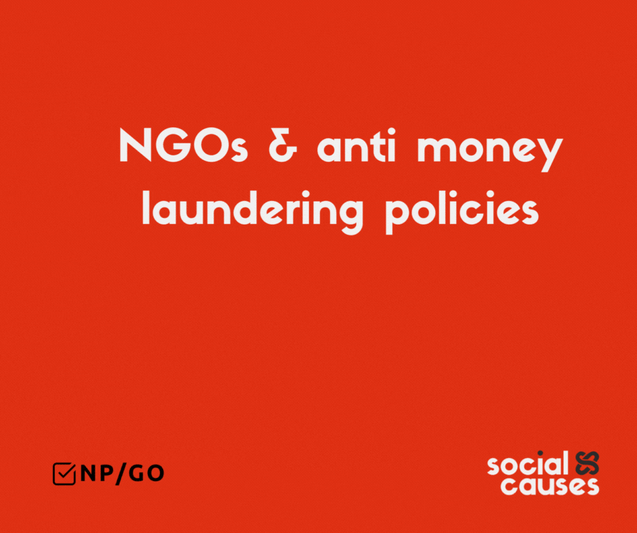With a strong background in both the financial services and development sector, that includes FNB,...
NGOs and Anti Money Laundering policy

Anti-Money Laundering (AML) policies are important for South African Nonprofit Organizations (NPOs) for several reasons:
1. Legal Compliance: In South Africa, the Financial Intelligence Centre Act (FICA) and the Prevention of Organised Crime Act (POCA) require organizations, including NPOs, to have robust AML policies in place to prevent money laundering and terrorist financing.
2. Risk Mitigation: Implementing AML policies helps NPOs mitigate the risk of inadvertently becoming involved in illegal activities. NPOs may unknowingly receive funds from sources engaged in money laundering or terrorist financing. AML policies can help identify and prevent such situations.
3. Reputation Management: Being associated with money laundering or other financial crimes can seriously damage an NPO's reputation. AML policies demonstrate the organization's commitment to ethical and legal practices, helping to maintain trust and support from donors, beneficiaries, and the public.
5. Access to Funding: Many funding organizations and donors, including governments and international agencies, require NPOs to have AML policies in place as a condition for receiving grants or donations. Complying with these requirements is crucial for accessing financial support.
6. International Collaboration: If NPOs engage in international activities or partnerships, they may need to adhere to AML standards set by global bodies such as the Financial Action Task Force (FATF). Having AML policies in place ensures alignment with international best practices.
7. Preventing Exploitation: Criminal organizations may attempt to use NPOs as a cover for their illicit activities. AML policies help NPOs recognize and report suspicious transactions, thereby preventing exploitation by criminals.
8. Avoiding Penalties: Noncompliance with AML regulations can result in significant penalties, including fines and legal action. By having AML policies and procedures in place, NPOs can avoid these penalties and associated legal troubles.
9. Ethical Responsibility: NPOs often exist to promote social good and support communities. Upholding ethical standards, including AML compliance, is in line with their missions and values.
In summary, AML policies are essential for South African NPOs to comply with legal requirements, protect their reputation, manage financial risk, access funding, and fulfill their ethical responsibilities. Implementing these policies helps ensure that NPOs continue to operate with integrity and transparency while contributing positively to society.
SocialCauses Foundation is making an AML policy template available to NGOs who have registered on NP/GO. Click here to register your NGO join.npgo.pro


